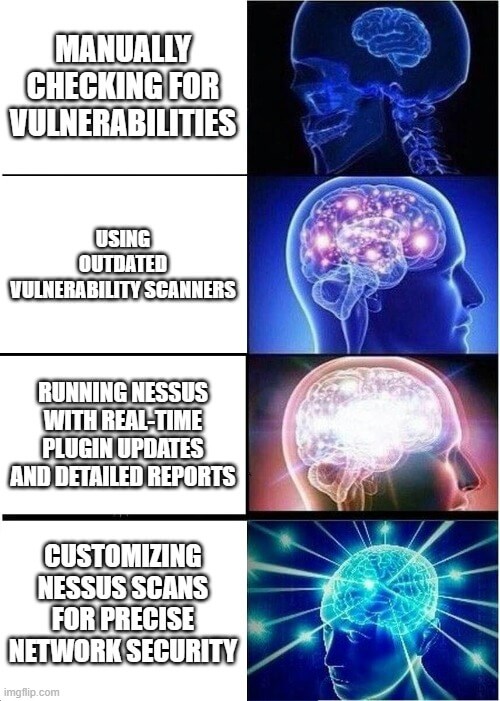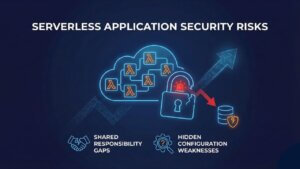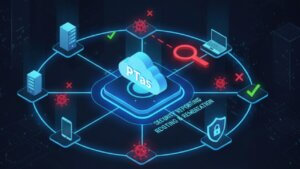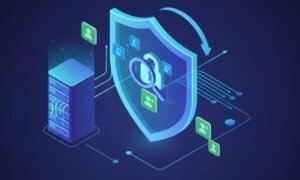In the evolving landscape of cybersecurity, vulnerability assessment tools play a critical role in protecting organizations from potential threats. Among these tools, Nessus, developed by Tenable, stands out as one of the most reliable and efficient solutions for vulnerability scanning. In this blog, we look at a comprehensive guide to Nessus, covering its installation process, key applications, and common use cases.
Table of Contents
What is Nessus?
Nessus is a vulnerability assessment tool designed to help organizations identify and manage security weaknesses in their IT infrastructure. It scans networks, systems, and devices to uncover vulnerabilities such as misconfigurations, outdated software, and weak passwords. Known for its accuracy and ease of use, Nessus has become a cornerstone in the cybersecurity toolkits of professionals worldwide.
Key Features of Nessus
Comprehensive Vulnerability Detection: Nessus identifies a broad spectrum of vulnerabilities, ranging from software bugs to configuration issues.
Customizable Scans: Users can configure scans based on their specific needs, focusing on particular devices, ports, or vulnerabilities.
Frequent Updates: Nessus receives regular plugin updates to stay ahead of emerging threats.
User-Friendly Interface: The tool’s intuitive dashboard simplifies navigation and scanning operations.
Detailed Reporting: Nessus provides detailed scan reports with descriptions of vulnerabilities, severity levels, and remediation steps.
Extensive Protocol Support: Nessus supports protocols like HTTP, SSH, FTP, and SMTP, ensuring comprehensive network scanning.

Installing Nessus
Setting up Nessus is a straightforward process. Below is a step-by-step guide for installing Nessus on a Linux system. The process is similar for Windows and macOS, with minor variations.
Step 1: Download Nessus
Visit the Tenable website.
Choose the appropriate version based on your operating system (Nessus Essentials, Professional, or Tenable.io).
Step 2: Install Nessus
Open the terminal and navigate to the directory where the installer is downloaded.
Use the command to install Nessus:
cmd
sudo dpkg -i Nessus-.deb # For Debian-based systems
sudo rpm -ivh Nessus-.rpm # For Red Hat-based systems- Start the Nessus service:
sudo systemctl start nessusd.service- Enable the service to start on boot:
sudo systemctl enable nessusd.serviceStep 3: Configure Nessus
Open a web browser and navigate to
https://<your-ip>:8834.Create a Nessus account or log in with existing credentials.
Choose the license type (e.g., Nessus Essentials for free scanning).
Enter the activation code to complete the setup.
Step 4: Update Plugins
Allow Nessus to download and install the latest plugins. This ensures the scanner is equipped to detect the most recent vulnerabilities.
Applications of Nessus
Nessus is versatile, making it an invaluable tool for various cybersecurity tasks. Here are its primary applications:
1. Vulnerability Assessment
Nessus identifies vulnerabilities in networks, systems, and applications. This includes detecting:
Outdated software and firmware.
Weak passwords and default credentials.
Misconfigured services and devices.
2. Compliance Auditing
Nessus supports compliance checks against industry standards such as:
PCI DSS (Payment Card Industry Data Security Standard).
HIPAA (Health Insurance Portability and Accountability Act).
ISO 27001 (Information Security Management).
3. Patch Management
By identifying unpatched systems, Nessus aids in prioritizing updates to mitigate risks effectively.
4. Configuration Audits
Nessus checks for misconfigurations in systems and services that could lead to security vulnerabilities.
5. Penetration Testing
Security professionals use Nessus during penetration tests to map potential vulnerabilities and targets.
Why Use Nessus?

Nessus has established itself as a leading tool in the cybersecurity industry for vulnerability assessment and management. Its widespread adoption is a testament to the many benefits it offers organizations of all sizes. Below, we delve into the key advantages that make Nessus an indispensable asset for security professionals:
Cost-Effective: Nessus offers a range of licensing options, including the free Nessus Essentials for scanning up to 16 IPs. This affordability makes it accessible to small organizations, students, and independent professionals.
Accuracy and Reliability: Nessus boasts a low false-positive rate, providing reliable vulnerability detection. Its accuracy ensures that organizations can focus on addressing real issues without wasting resources on unnecessary fixes.
Ease of Use: With its intuitive interface, Nessus simplifies the process of setting up scans, reviewing results, and generating reports. Users can quickly learn and operate the tool without extensive training.
Scalability: Nessus adapts to varying organizational needs. Small businesses can rely on Nessus Essentials, while larger enterprises can leverage Nessus Professional or integrate it with Tenable.io and Tenable.sc for comprehensive vulnerability management.
Regular and Timely Updates: Nessus receives frequent updates to its vulnerability database (plugins), ensuring it stays current with emerging threats and the latest security standards. This proactive approach helps organizations maintain robust defenses.
Comprehensive Reporting and Actionable Insights: Nessus provides detailed reports with severity ratings, vulnerability descriptions, and recommended remediation steps. These actionable insights help organizations prioritize and address critical vulnerabilities efficiently.
Broad Compatibility: Nessus supports a wide range of protocols (e.g., HTTP, SSH, FTP) and platforms (Windows, Linux, macOS), making it versatile and adaptable to various IT environments.
When considering a vulnerability assessment tool, the advantages of Nessus clearly stand out. Its balance of affordability, functionality, and reliability makes it a top choice for organizations aiming to strengthen their cybersecurity posture.
Conclusion
Nessus is a powerful tool that empowers organizations to proactively identify and address vulnerabilities in their IT environments. Whether you’re conducting a simple vulnerability scan or performing a comprehensive security assessment, Nessus’s ease of use, accuracy, and versatility make it an essential asset for cybersecurity professionals. By leveraging its capabilities, organizations can enhance their security posture, comply with industry standards, and mitigate risks effectively.
Start your journey with Nessus today to safeguard your digital assets and stay ahead in the ever-changing cybersecurity landscape.
Why Businesses Trust SecureMyOrg for Comprehensive Network Security
At SecureMyOrg, we uncover and fix all possible security vulnerabilities of mobile and web, while providing solutions to mitigate risks. We are trusted by renowned companies like Yahoo, Gojek and Rippling, and with 100% client satisfaction, you’re in safe hands!







Some of the things people reach out to us for –
- Building their cybersecurity program from scratch – setting up cloud security using cost-effective tools, SIEM for alert monitoring, building policies for the company
- Vulnerability Assessment and Penetration Testing ( VAPT ) – We have certified professionals, with certifications like OSCP, CREST – CPSA & CRT, CKA and CKS
- DevSecOps consulting
- Red Teaming activity
- Regular security audits, before product release
- Full time security engineers.
Relevant Posts

Top Cybersecurity Threats Facing Businesses In 2026
Businesses entering 2026 face a security landscape that is more complex, more interconnected, and far less forgiving than in previous years. Cybersecurity threats no longer

Top 5 Security Weaknesses Cloud-Native Apps Commonly Ignore
Cloud-native applications promise speed, flexibility, and scalability. Teams ship features faster, infrastructure adapts automatically, and operational overhead drops. Yet many organizations discover later that security

Why Weak Serverless Application Security Puts Your Business at Risk
Weak security in serverless environments often goes unnoticed until it leads to real damage. Misconfigured triggers, broad permissions, and poor visibility can expose sensitive data and disrupt business operations. Understanding where the risks appear is the first step toward building safer, more reliable serverless applications.

What Is Penetration Testing as a Service?
Penetration testing as a service (PTaaS) lets experts simulate real attacks to uncover vulnerabilities before hackers do. This guide explains the process, benefits, and costs, helping businesses strengthen defenses with predictable, ongoing security checks.

How To Inspect Encrypted Traffic Without Breaking Privacy
Network administrators face a challenge: securing systems while respecting privacy. This guide explains how to inspect encrypted traffic without breaking privacy using metadata, anomaly detection, and machine learning ensuring visibility, compliance, and trust.

How to Audit Infrastructure as Code (IaC) for Security Vulnerabilities
Discover how to audit Infrastructure as Code (IaC) for security vulnerabilities with this practical guide. Learn to scan IaC files using tools like Checkov, fix issues like exposed resources, and integrate audits into CI/CD pipelines. Protect your cloud systems from misconfigurations and ensure compliance with clear, actionable steps.
